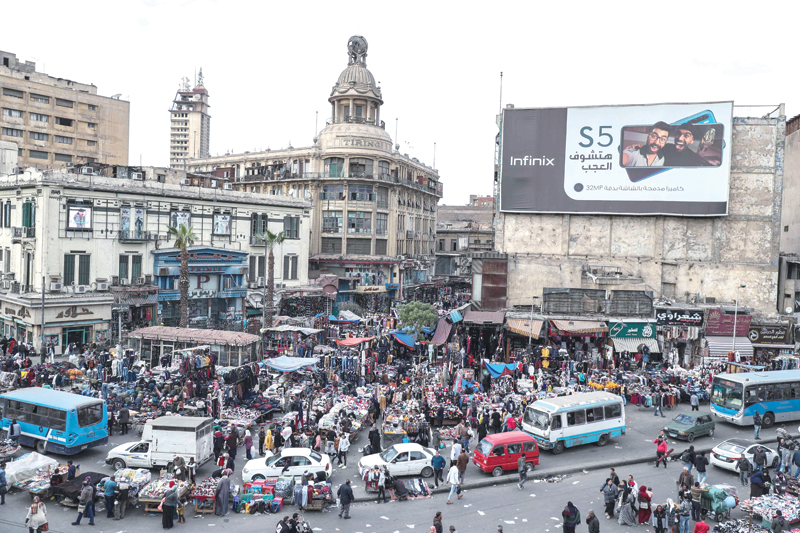

CAIRO: Egypt’s population has passed 100 million, its statistics agency said on Tuesday, highlighting the threat of overpopulation in a country where many live in crowded megacities.
The North African country retains its position as the most populous Arab nation and Africa’s third most populous country behind Nigeria and Ethiopia.
A counter installed atop the Central Agency for Public Mobilisation and Statistics (CAPMAS) ticked over into nine digits for the first time, the agency said. A new baby is born in Egypt roughly every 17.9 seconds, the statistics body calculated.
Gomaa Shehata, a 33-year-old cafe worker in an upmarket Cairo suburb, became a father for the second time to a son last week.
“All I want from life is for my children to grow up with clothes on their backs and to be healthy,” he said.
His monthly wage of 2200 pounds ($140), plus the tips he relies on from serving his customers, barely sustains his family.
Nearly one in three Egyptians live below the poverty line, according to CAPMAS figures released last year.
The unemployment rate is around 10 per cent, with millions leading precarious lives often without social protection in the informal economy.
“I’m really sick of life at the moment. I’d like to have a job where I can spend more quality time with my kids,” Shehata said.
He currently works at least 16 hours a day without counting a taxing daily commute.
Birth rates in Egypt have skyrocketed in the past three decades with around 1.5 million babies born every year — but they have recently slowed down as Egypt’s government has encouraged smaller families.
Overpopulation has presented a myriad of challenges for authorities in recent years even with policies to stem the rapid growth.
Planning Minister Hala al Saeed said at the CAPMAS conference on Tuesday that more funds would bolster the health budget in 2021.
“Apart from the physical problems of population density, the social problems are compounded,” Heba El Laithy, a Cairo University economics professor who has worked with CAPMAS, said.
“Poor people tend to bear more children because of the idea that they will help them out socially and economically in the long run,” she said. “Children are seen as breadwinners as they progress with age and that they would help the parents as they get older,” El Laithy added.
Prime Minister Mostafa Madbouly told a cabinet meeting last week that “population growth is the single largest challenge facing the state,” adding that it “affects national security”. — AFP
Oman Observer is now on the WhatsApp channel. Click here



